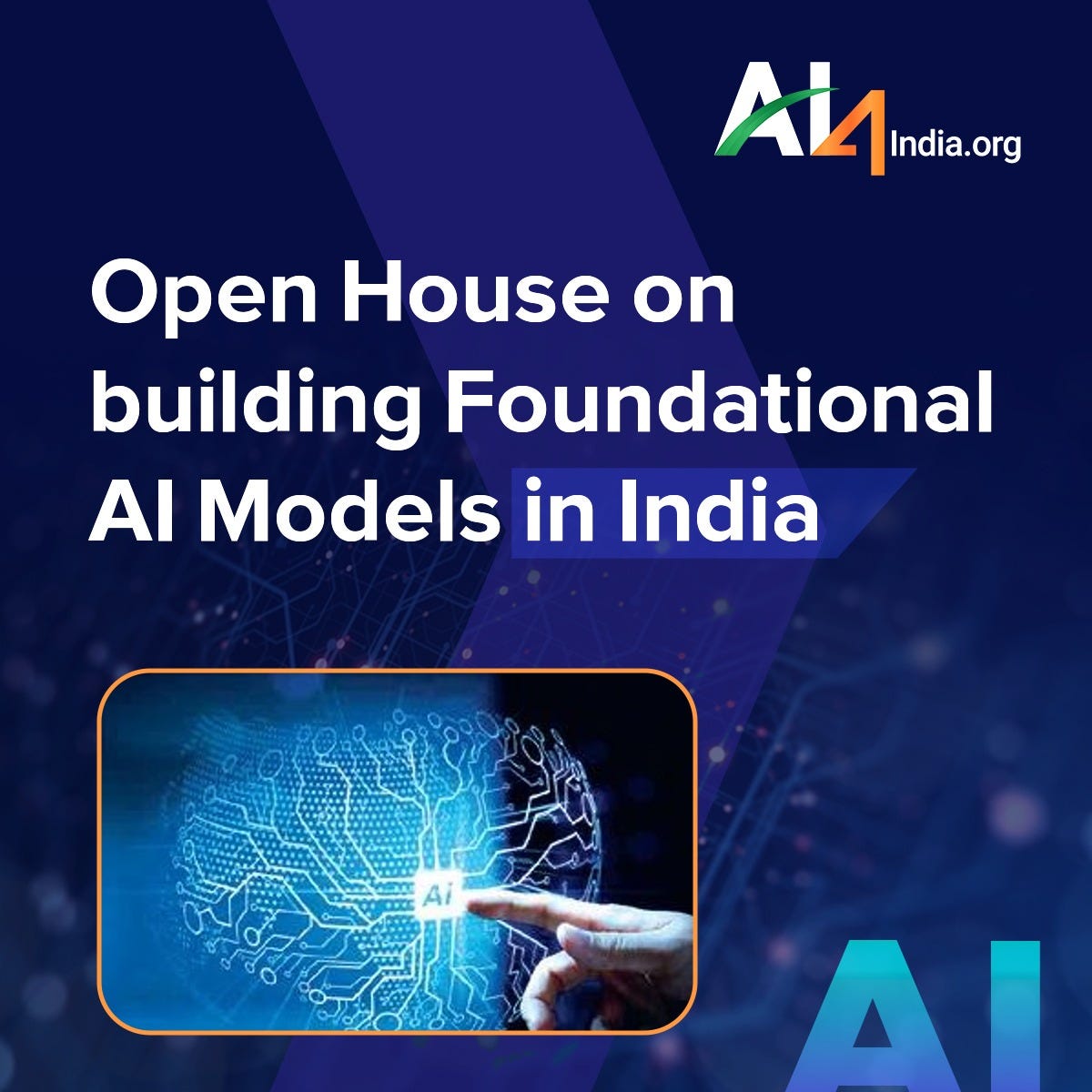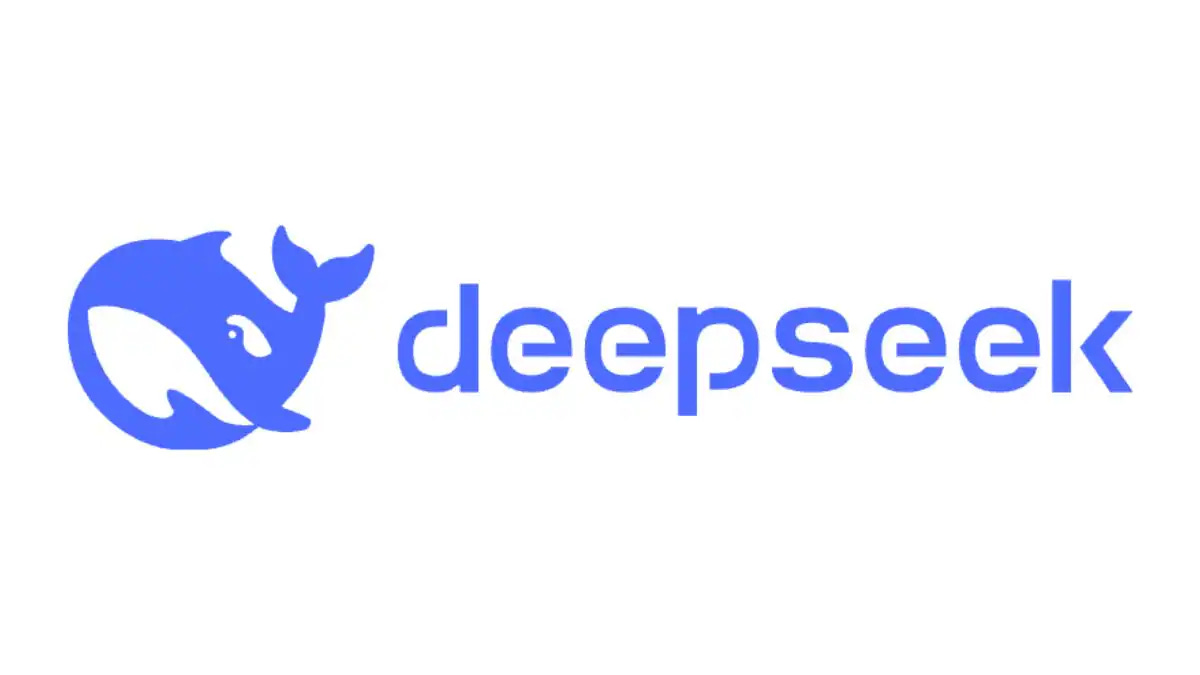In this edition of the AI4India Weekly, we highlight India’s steps towards establishing a self-reliant AI ecosystem. The recent open house on foundational AI models focused on the need for systems that align with India’s unique cultural and socio-economic context. Discussions covered challenges like data availability and resource constraints, along with the potential of domain-specific models in healthcare and agriculture. With several initiatives aimed at advancing AI research and encouraging open collaboration, India is making significant progress towards its goal of AI autonomy. Stay tuned for more updates on how India is shaping its AI future.
Open House: Building Foundational AI Models in India
AI4India.org recently hosted a thought-provoking open house discussion on the importance of building foundational AI models in India. The session brought together experts from academia, industry, and policymaking to address India’s unique AI needs and discuss strategies for achieving autonomy in AI technologies.
The dialogue opened with the acknowledgment of India’s growing need for foundational AI models that are culturally relevant and contextually grounded. Participants stressed the importance of strategic independence in AI, emphasizing the potential for models that prioritize Indian values and specific industry requirements. The consensus was clear: bridging the gap between academia, industry, and policymakers is essential to advance the nation’s AI ecosystem.
Challenges and Opportunities
The conversation highlighted key barriers, including the limited availability of high-quality data, insufficient infrastructure, and resource constraints faced by smaller teams across India. The discussion explored ways to tackle these challenges, with particular focus on efficient resource allocation and scaling efforts to support diverse AI applications.
Opportunities were also a major talking point. The need for cost-effective solutions in AI development was emphasized, especially for reducing inference costs to make foundational models accessible to startups and smaller organizations. The discussion also noted the potential of domain-specific models to address critical sectors such as healthcare, agriculture, and pharmaceuticals, which require solutions tailored to handle sensitive and context-specific data.
Key Initiatives and Next Steps
Several actionable recommendations emerged from the discussion, aimed at strengthening India's position in the global AI landscape:
Documenting Best Practices: A dedicated effort will focus on documenting efficient techniques for training and inferencing large language models (LLMs) by studying organizations that specialize in cost-effective engineering solutions.
Launch of the DataDaan Portal: AI4India will launch the DataDaan initiative to encourage individuals and organizations to contribute anonymized datasets, fostering open collaboration and driving advancements in AI research.
Benchmarking AI Models for Indian Relevance: A framework will be developed to evaluate and benchmark AI models for their alignment with India-specific cultural, linguistic, and ethical contexts.
Collaboration Resources: A knowledge hub will be created to provide regular updates on key events, advancements, and opportunities related to foundational AI models in India.
Funding Models: Discussions on sustainable funding mechanisms will continue, aiming to balance public and private investments to maximize impact and scalability.
Towards a Shared Vision
The session concluded with a call to action, urging stakeholders to adopt a mission-mode approach to foundational AI development. A shared vision emerged around fostering collaboration and ensuring that AI systems are designed to align with India’s socio-economic priorities. Discussions also emphasized the importance of developing sovereign foundational models to safeguard national interests and minimize dependency on external systems.
This open house demonstrated the potential of collaborative thinking and action to shape India’s AI journey. The insights and initiatives from this discussion serve as a stepping stone toward positioning India as a global leader in AI innovation.
DeepSeek: The Chinese Innovation Shaking Up AI Markets
China's DeepSeek, a groundbreaking generative AI model, has captured global attention, becoming a topic of both excitement and concern in the scientific and technological communities. DeepSeek’s unique architecture boasts significant advancements in multimodal capabilities, enabling it to process and generate insights from diverse data types such as text, images, and even genomic information. These capabilities have immense potential for applications across industries like healthcare, robotics, and climate modeling. However, its disruptive potential has sent ripples through global AI markets, raising questions about competition, regulation, and the future of AI dominance.
What sets DeepSeek apart is its ability to integrate domain-specific expertise seamlessly into its output. Unlike traditional AI systems that require massive datasets, DeepSeek leverages smaller, curated datasets to achieve high precision in niche areas, a feature that positions it as a transformative tool for research. For instance, scientists are already exploring its capabilities in genomic analysis, potentially revolutionizing personalized medicine and drug discovery. Furthermore, DeepSeek’s efficiency in energy consumption during model training has sparked interest in sustainability-focused AI development, providing a blueprint for energy-conscious AI innovations.
Yet, DeepSeek's emergence has also fueled debates about the concentration of AI power and the implications for global markets. With China investing heavily in AI development, this innovation is seen as a strategic step toward cementing its position as a leader in advanced technologies. Meanwhile, concerns over intellectual property rights, data security, and ethical governance loom large, prompting global regulators to call for more oversight. As DeepSeek garners global acclaim, its trajectory will undoubtedly shape future discussions about collaboration, competition, and responsible AI development.
Revolutionizing AI Research: OpenAI Launches Stargate Project
OpenAI has unveiled the Stargate Project, an ambitious initiative aimed at transforming AI research and deployment. This project represents a strategic collaboration between OpenAI and select enterprise partners, with a focus on building scalable, cutting-edge AI systems. Stargate is designed to bridge the gap between advanced AI research and real-world applications, enabling organizations to leverage OpenAI's latest breakthroughs in language models, generative AI, and robotics.
What sets the Stargate Project apart is its emphasis on co-creation. Enterprises participating in the program will work directly with OpenAI's research teams to develop custom AI solutions tailored to their unique challenges. By fostering a collaborative approach, OpenAI aims to democratize access to sophisticated AI technologies while accelerating innovation across industries. With the Stargate Project, OpenAI is not only pushing the boundaries of AI but also ensuring that its transformative potential is harnessed responsibly and inclusively.
A Vision for Sovereign AI: Building India’s Self-Reliant AI Future
India stands at a pivotal moment in the global AI race, with an urgent need to create a self-reliant AI ecosystem. Sovereign AI, which reflects India's diverse languages, values, and culture, is essential for driving inclusive growth. By focusing on controlling the entire AI value chain—from transforming raw data into actionable intelligence within the country—India can secure its autonomy, economic resilience, and cultural preservation. As Prime Minister Modi aptly noted, “exporting flour to import bread” is unsustainable. To lead in AI, India must invest in both foundational models and scalable solutions, ensuring that innovation benefits all citizens.
Control over data is crucial in the digital age, and Sovereign AI enables India to harness this asset for its developmental priorities. With hundreds of languages and dialects, foreign-developed AI systems often fail to address the diverse needs of India’s population, especially in critical sectors like health and education. Indigenous AI solutions can ensure accessibility and equity, empowering underserved communities in their native languages and cultural contexts. Sovereign AI is not just about technology—it is a strategic imperative to nurture India’s identity, preserve its heritage, and ensure a future of equitable innovation and prosperity.
AI4India at the Paris AI Action Summit 2025
AI4India is gearing up for an exciting participation in the upcoming Paris AI Action Summit 2025! In partnership with the Center for Policy Research and Governance (CPRG), AI4India will be hosting a high-level panel discussion titled “Data for Development: Building AI in the Global South.”
This pivotal event will feature thought leaders from across the globe, focusing on bridging AI divides between the Global North and South. Stay tuned for more details on how AI4India is contributing to this global dialogue on inclusive AI governance and development!
#DataDaan - Donate for a Digital India
Aligned with the IndiaAI mission and the efforts from MeitY to ensure the availability of AI-usable data across govt, the #DataDaan campaign by AI4India.org is inviting participation from individuals and organizations to contribute valuable data for AI development in India. This initiative aims to gather diverse datasets to enrich the national data repository, supporting innovation across various sectors. We encourage everyone to read the detailed white paper on the campaign - https://bit.ly/DataDaan and fill out the form - http://bit.ly/3XfxD3H to contribute to this transformative effort.
NOTE: The views expressed by the authors are their own. AI4India as a forum does not endorse any comments on specific brands, products, platforms or companies.
Join our AI4India.org forum to be a part of the AI revolution in India by visiting our site now.
Follow us on our X and LinkedIn to receive interesting updates and analysis of AI-related news









